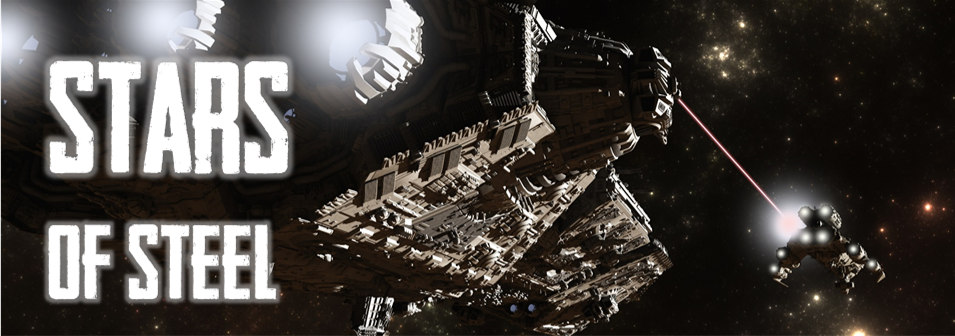On a the 12th of December, 2661, the royal family of the Terran Reich, masters of mankind, rulers of billions, and lords of hundreds of planets, watched in mute horror as the pride of the Terran navy, the home fleet, succumbed to a double envelopment and was blown to molecules. Thousands of Kriegsmarrine fought to the last, mauling their enemies, but ultimately falling to one of the greatest naval defeats in the history of space combat.
The defeat saw the Reich completely stripped of power, and languishing under the vengeful domination of its conquerors. As a despised United Colonial puppet was placed on the throne and it's once proud military stripped down to almost nothing, it's now defenceless territories became covered prizes fought over by its hungry neighbours.
Looking at the state of this once mighty empire in the decades following the war, one could not be faulted for thinking that this catastrophe would have spelled the end of Terran power. But as has so many times in history proven the case, the overreach by the victors and mismanagement of their victory would see the trampled on power, rise, more powerful and dangerous than ever.
By the final years of the 27th century, the Terran Reich had completed its rebuilding efforts, after its defeat at the hands of the United Colonies half a century earlier. Despite the strict stipulations in the Enceladus treaty, forbidding the human ancestral home world from remilitarising, a new, charismatic, young Keizer, with the help of the aristocratic remnants of the Terran military, had ousted his publicly despised sister from the throne and set out to rebuild the Iron Reich to its former glory.
Within weeks of taking the throne, he used the decades long economic spiral that resulted from strictly enforced and continuing trade embargoes, reparation extraction and territorial annexations by the United Colonies, as grounds to set aside several of the most restrictive stipulations of the Enceladus treaty. Viciously condemning the previously mentioned actions as breaches of that “already unjust and unfair” 2662 treaty, Ludwig von Bismarck the third, built up on simmering public anger at the realities of living in a defeated, post war society, and the legacies of the destruction of many population centres during the previous conflict. Orbital bombardments had destroyed many imperial cities, especially in the Sol system and the Imperial societies that had endured them were deeply still traumatised With these and other popularist sentiments, Ludwig von Bismarck the third, quickly gained massive public support. Support he capitalised to decimate the previous administration, removing any pro UC or anti-war officials, and to reshape the gutted empire into a new Reich.
Within a decade, the fleets had been rebuilt and expanded, an interstellar naval force twice as large as the Terran Kriegsflotte at the start of the last war. And a force that sported a new generation of weapons and armour. The United Colonies looked on with growing concern, but remained unwilling to plunge the entire human sphere back into a war. Diplomatic efforts increased tenfold. However In the years since the end of the last great war, ideological differences had seen the United Colonies become politically fragmented. By 2681 the United Nations of Ava, and the co-prosperity sphere had broken away entirely and declared their independence. This new weakened and divided United Colonies did not possess the same push and leverage that had kept the Terran Empire subdued in the years since its defeat, especially when under the influence of a leader like Ludwig the third. Compromise after compromise was made as the Keizer grew ever more demanding.
Eventually, and as later historians have suggested, intentionally, the negotiations failed, and in 2691 during a rousing public address, the Keizer officially declared the Enceladus treaty voided, due to repeated infringements on its terms by the United Colonies. It is hard to illuminate to the modern reader with just how much acclaim from the Terran public and how much shock and terror from the United Colonies this declaration was met. To many on both sides this was tantamount to reigniting the previous war.
As the Reich was freed to pursue its militarisation ambitions without constraints, chaos broke out in the United Colonial parliament. The unity under which the scattered outer sphere human settlements had revolted against the Reich 52 years earlier had dissolved in the face of complacency. The great beast had after all been hamstrung and subdued. With their victory over the Königshaus Flotte in 2661 the internal economic and political posturing had asserted itself almost immediately, and lead to individual colonies forming rivalries with their neighbours.
